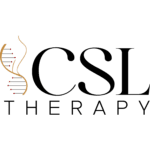Acceptable/Unacceptable Content

Acceptable course content includes:
-
Applications of CSL Therapy foundational lectures/methods and bodywork therapy for specific needs, conditions, or client populations
-
Anatomy, physiology and kinesiology
-
Research literacy for the Body Altering Aesthetics Industry
-
Client assessment protocols, skills for client record keeping, strategies for interfacing with other health care providers
-
Use of external agents such as water, heat, cold, or topicals
-
Body-centered or somatic psychology, or psychophysiology
-
Interpersonal skills - which may include communication skills, boundary functions, phenomena of transference, countertransference, and projection
-
Standards of practice, professional ethics or state laws
-
Strategies for the marketing of CSL Therapy and bodywork therapy practices
-
Theory or practice of ergonomic science as applied to therapist or client
-
Hygiene, methods of infectious disease control, organization and management of the treatment environment
-
The use of CSL Therapy tools and their specific needs
-
Self-care courses concentrating on nutrition and/or diet only, but only as it enhances the learner's knowledge about the practice of CSL Therapy
-
Perform yoga/yoga teacher training programs (acceptable for therapist's self-care OR for therapists to teach to clients)
-
Active strengthening/physical training (acceptable for therapist's self-care only OR for therapists to teach to clients)
-
Advanced science courses that contain content which goes beyond the CSL Therapist's scope of practice (as defined by state and/or local legislation, as well as CSL Therapy Organizations ordinances), and that is instructive in understanding different systems of the body or human behavior more in depth.
-
Energy work that includes "professional therapeutic hands-on applications."
-
Basic introduction of herbs and nutritional supplements
-
Mental health assessments (by psychiatrists and licensed mental health professionals only)
-
Crystal education
-
Professional Communications with clients
-
Strategies for communicating and collaborating with healthcare providers
-
Laws and Business Practices that relate to the Body Altering Aesthetics Industry
-
State laws that relate to the Body Altering Aesthetics Industry
-
Marketing for CSL Therapy and beauty bodywork practices
-
Professionalism and Ethics for the Body Altering Aesthetics Industry
-
Standard Orders of Practice for Body Altering Aesthetic professionals
-
Assessment & Program Evaluation trainings
-
Client assessment protocols
-
Inventory trainings for beauty business owners
-
Tax preparation for beauty business owners
-
Client record keeping
-
CPR/First Aid as an integrated wound care course for Incisional Sciences and PostOp-Indur Wound Care
Unacceptable Course Content includes:
-
Implementation of allopathic medical/surgical procedures
-
Physically invasive modalities, e.g., ear candles, intra-anal, intra-vaginal modalities, etc.
-
Incorporation of chiropractic/osteopathic, e.g., ballistic, thrust oriented or other services and procedures which require additional licensure or certification
-
Prescription of pharmaceuticals
-
Performing hypnosis
-
Performing an aesthetician facial or exfoliation of cells from the body
-
Psychological counseling
-
Psychic, clairvoyance, telepathic, astrology, religious practices
-
Dry needling and acupuncture
-
Energy work that does not involve “the application of professional therapeutic touch”
-
Aura techniques
-
Fire cupping or any procedure that works with fire
-
Breast massage as part of anything other than medical procedures or prescribed by a physician (ACBAA does accept mammary manipulation training courses when learning about oncology & breast augmentation/reduction procedures)
-
Moxibustion
-
Tantric, ayurvedic, or any sexually inclined modality
-
Tongue Reading
-
Erroneous, misleading titles of modalities; a description of the course must be added to the title if the modality cannot be easily deciphered by the title

